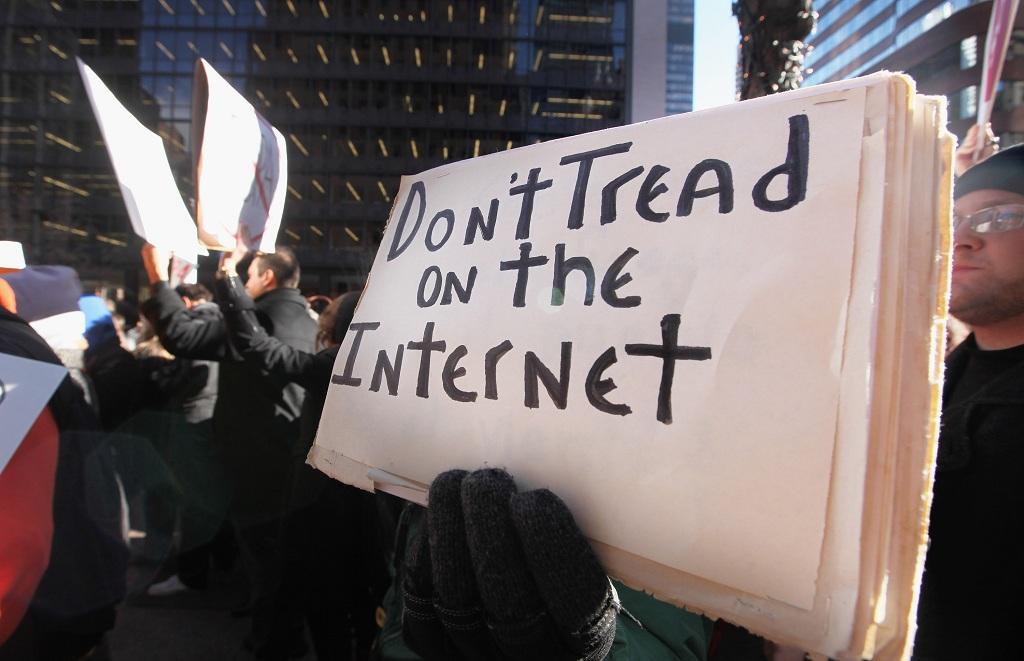With SOPA out, ISPs take up enforcement
Protesters demonstrate against the proposed Stop Online Piracy Act (SOPA) and Protect IP Act (PIPA) outside the offices of U.S. Sen. Charles Schumer (D-NY) and U.S. Sen. Kirsten Gillibrand (D-NY) on January 18, 2012 in New York City. The controversial legislation is aimed at preventing piracy of media but those opposed believe it will support censorship on January 18, 2012 in New York City.
Internet Service Providers (ISPs) have long held a precarious position on the internet.
Companies like Comcast, Verizon and Time Warner Cable are often caught between internet users and the copyright avengers like the Recording Industry Association of America (RIAA) that seek to stop illegal downloads.
Now it looks like ISPs are edging closer and closer to the side of the RIAA, and may become the entertainment industry's copyright law enforcers.
RIAA CEO Cary Sherman said that ISPs that have opted into the program are preparing to begin tracking their customers and forcing them to cease online activity that is deemed to be in violation of copyright law by the RIAA and other industry advocates.
Last July, Comcast, Verizon, Time Warner Cable and others adopted policies that were designed to discourage users from illegally downloading media, circumventing official law enforcement. Now, they’ve been encouraged to take steps in enforcing copyright law outside of the realm of traditional law enforcement.
"Each ISP has to develop their infrastructure for automating the system," Sherman said during a recent panel discussion.
Sherman also said that most ISPs are on track to begin implementing an enforcement plan on July 1 this year.
They need this "for establishing the database so they can keep track of repeat infringers, so they know that this is the first notice or the third notice. Every ISP has to do it differently depending on the architecture of its particular network. Some are nearing completion and others are a little further from completion," Sherman told CNET.
The program outlined by Sherman gives the customer two warnings that they are being accused of illegally downloading copyrighted material. On the third offense, the customer is asked to confirm that they have been notified by their ISP about their illegal downloads. If the customer persists, then a number of penalties could enacted. These penalties include reducing the customer's connection speed or disconnecting them entirely from the service for which they are paying.
With SOPA and PIPA filed away into legislative history, the music, movie, and software industries seem to have given up on Congress, and are looking other means to protec their copyrights. It looks like with Internet Service Providers they may have found a willing partner.
Our coverage reaches millions each week, but only a small fraction of listeners contribute to sustain our program. We still need 224 more people to donate $100 or $10/monthly to unlock our $67,000 match. Will you help us get there today?
